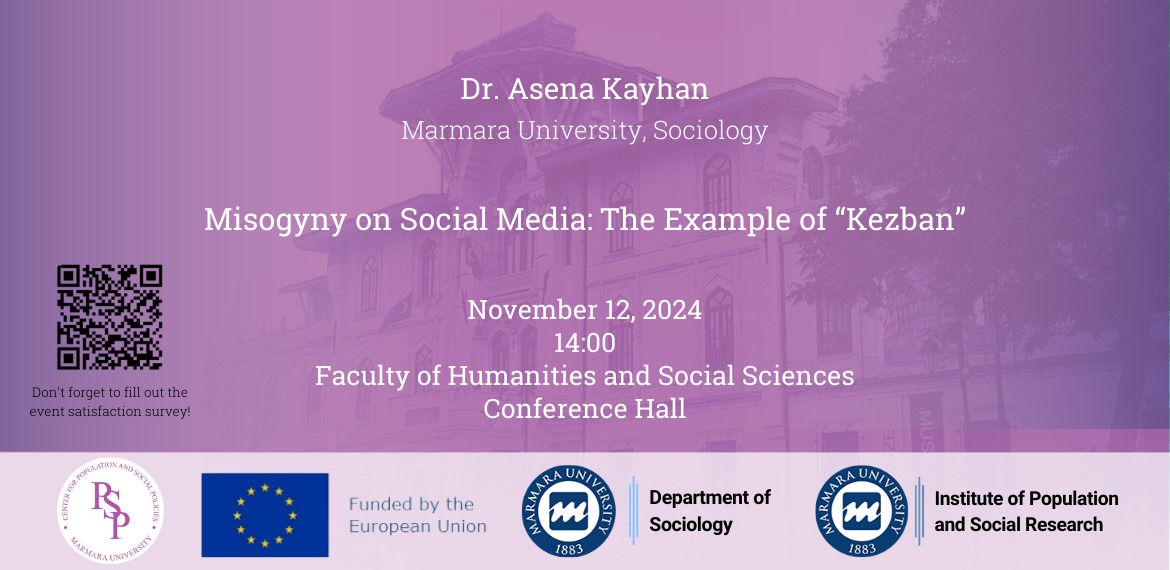
Misogyny on Social Media: The Example of "Kezban"
Asena Kayhan - Marmara University
Date: November 12, 2024
Time: 14:00
Location: Faculty of Humanities and Social Sciences Conference Hall
Summary
This study examines the character of “Kezban”, who was associated with the “ideal woman” in popular Turkish films in the 1970s, and became a subject of mockery and hatred in humorous texts and memes on social media in the late 1990s, and eventually became a general insult for women. Using critical discourse analysis, this study examines “Kezban” memes and texts by referring to Goffman’s concepts of stigmatization and Bourdieu’s concepts of symbolic violence. The aim of this study is to explain how women are constantly humiliated, insulted, and always feel the judgmental male gaze on them under the mask of humor. Through mockery, women are shamed, their self-confidence is damaged, they are silenced, and they are forced to submit to male domination.
Kezban’s story is actually the story of masculinity in crisis in the post-industrial age. Men who cannot maintain their fathers’ socio-economic standards feel like failures and have lost their masculinity. Women, who became more visible and vocal with the women's movement after the 1980s, became the primary targets of the shame, hatred and anger of men whose positions they "stole". Humor also becomes a weapon in the campaign men wage against women.
The ease of production and circulation of memes, one of the most popular forms of digital humor, means a lot of repetition. This gives memes an active role in the construction of social perception and meaning. This study argues that social media, which is thought to be inclusive and egalitarian, has increasingly become an environment hostile to women, where hate speech against women can be rapidly produced and spread, perpetuating the patriarchal hierarchy in society and paving the way for violence against women.
